Publications
Articles, publications, books, tools and multimedia features from the U.S. Institute of Peace provide the latest news, analysis, research findings, practitioner guides and reports, all related to the conflict zones and issues that are at the center of the Institute’s work to prevent and reduce violent conflict.
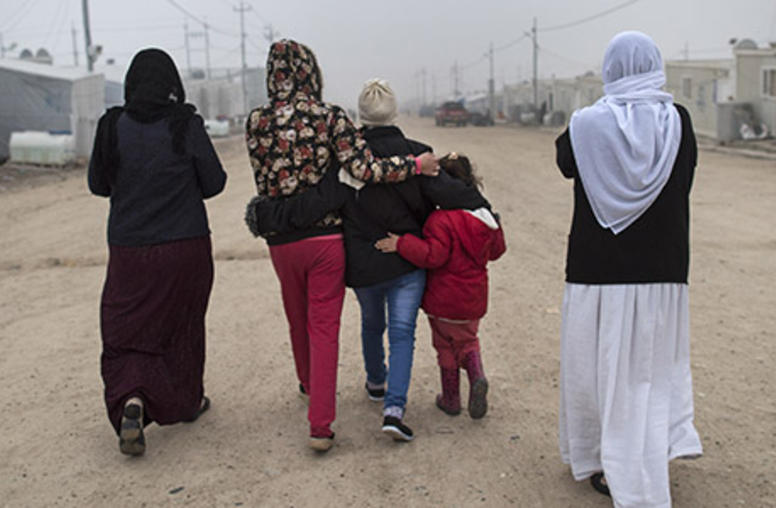
ISIS Makes Sex Slavery Key Tactic of Terrorism
The sexual violence committed against women and girls by the Islamic State of Iraq and Syria (ISIS) can only begin to be addressed with a multipronged response from the global to the local level, said Zainab Hawa Bangura, the United Nations’ point person on the issue. Speaking at the U.S. Institute of Peace, Bangura cited work ranging from promotion of U.N. resolutions to talks with religious leaders to suggest how the brutal, systematic sexual slavery imposed by the extremist group might be ...
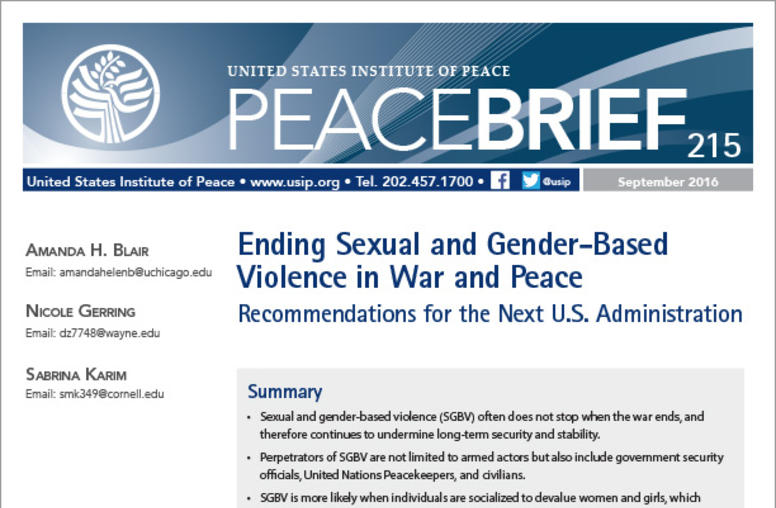
Ending Sexual and Gender-Based Violence in War and Peace
Sexual and gender-based violence (SGBV) can undermine long-term state stability and security even after states have transitioned out of violent conflict. This brief highlights four areas around SGBV that require urgent attention: the conflict cycle, moving beyond armed actors, protectors as perpetrators, and the role of SGBV in threatening political participation. This Brief was prepared by several members of the Missing Peace Young Scholars Network, supported through a longtime partnership b...
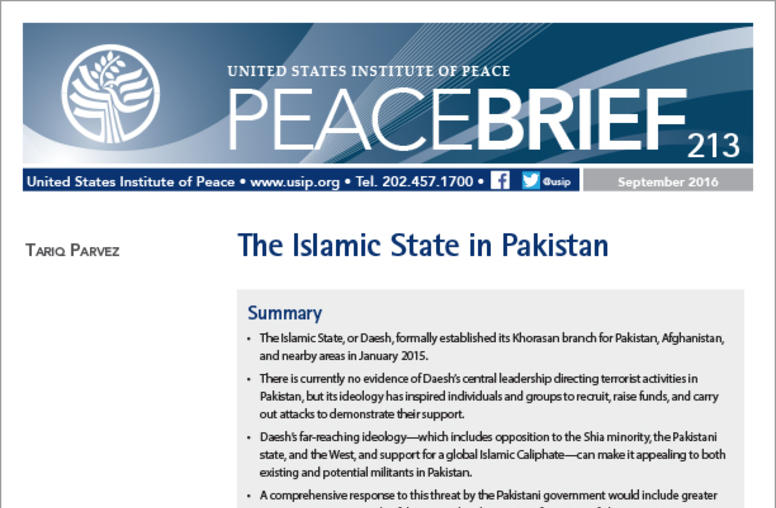
The Islamic State In Pakistan
The Islamic State, or Daesh, has moved its influence beyond Iraq and Syria, formally establishing its Khorasan branch in Central Asia in January 2015. This brief explores Daesh in Pakistan, how its ideology can influence both existing and potential militants, and what a comprehensive response from the Pakistani government would involve.
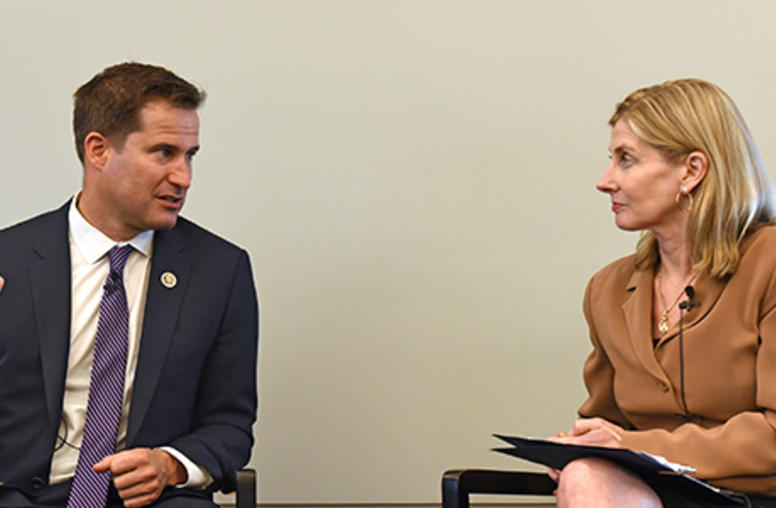
Ex-Marine Lawmaker Seeks Diplomatic ‘Surge’ in Iraq
After four tours with the U.S. Marines in Iraq, Representative Seth Moulton, a first-term Democrat from Massachusetts, remains focused on the country’s development and its current battle against the ISIS extremist group, and he said he has concluded that its fundamental problems are political. A military strategy that fails to address Iraq’s political weaknesses ensures that American troops—about 5,000 of whom have returned to the country—will be back again five years after ISIS is defeated, ...
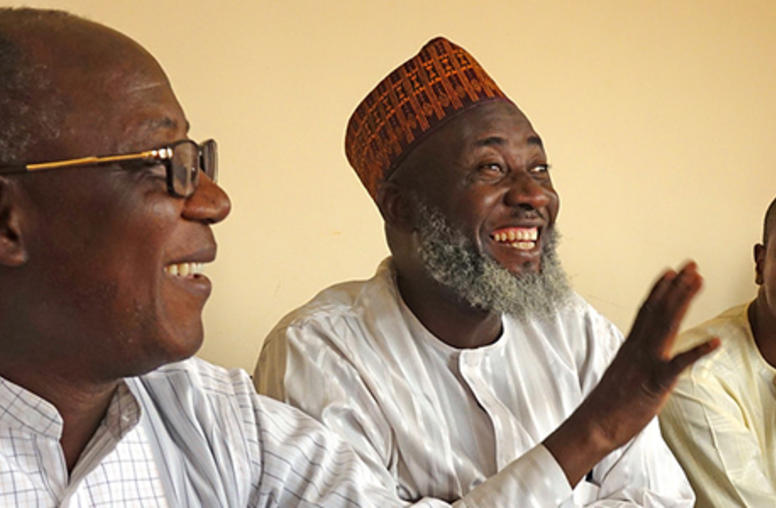
Nigeria’s Powerful Governors Eye Roots of Boko Haram
Governors from northern Nigeria, where the U.S. military is helping quell the Boko Haram militant group, will convene at the U.S. Institute of Peace for the second time this October to agree on civilian actions they can take to address the root causes of violent extremism and help ensure that efforts to stabilize this vital region will stick. Former U.S. Assistant Secretary of State Johnnie Carson, a USIP senior advisor helping organize the gathering, said Nigerian governors are some of the m...
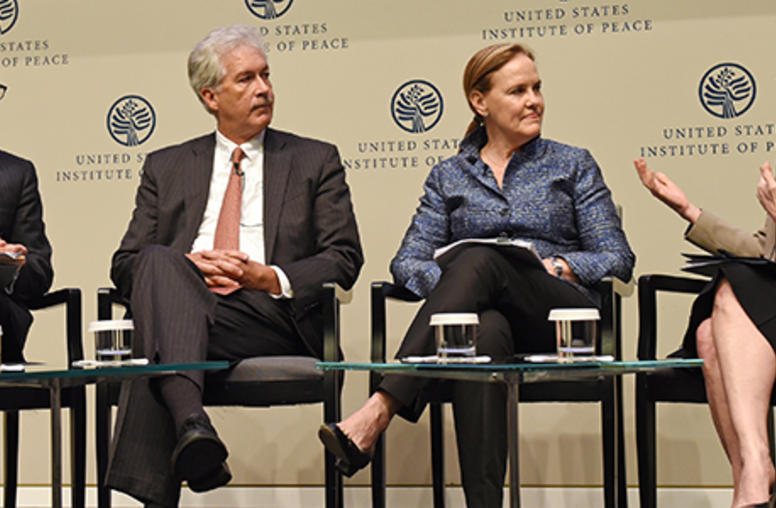
Burns, Flournoy, Lindborg Press Urgency of Fragile States
Three former high-ranking officials in the State Department, the Pentagon and the U.S. Agency for International Development (USAID) urged the next presidential administration to commit more attention and resources to preventing the kinds of violent conflicts that are roiling the Middle East and other regions today and spilling over into neighboring countries, Europe and the United States. Former Deputy Secretary of State Bill Burns, Under Secretary of Defense Michele Flournoy and USAID Assist...
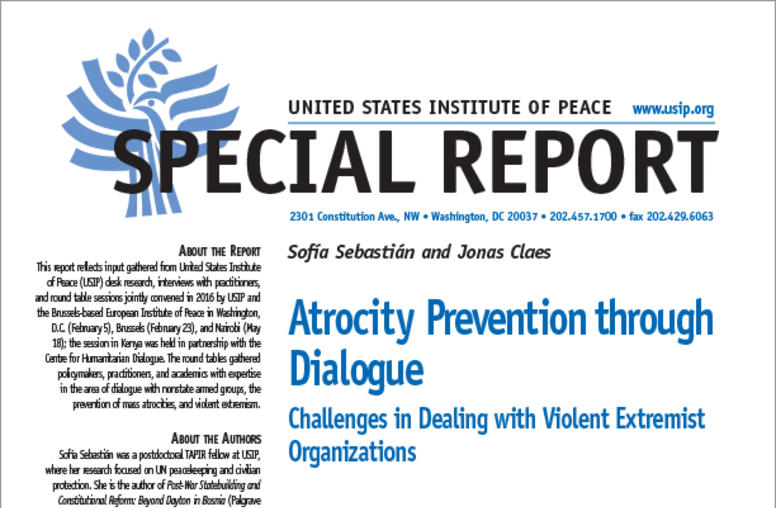
Atrocity Prevention through Dialogue
Dialogue with violent extremist groups is a controversial practice, even when used to prevent widespread violence or atrocities. Humanitarian dialogue may serve as a crisis-mitigation instrument, offering short-term relief and civilian protection. When the risk of atrocities is remote, political dialogue can be used for structural or upstream prevention aimed at conflict resolution or addressing community grievances. Though dialogue as a peacebuilding tool has potential in any stage of a conf...
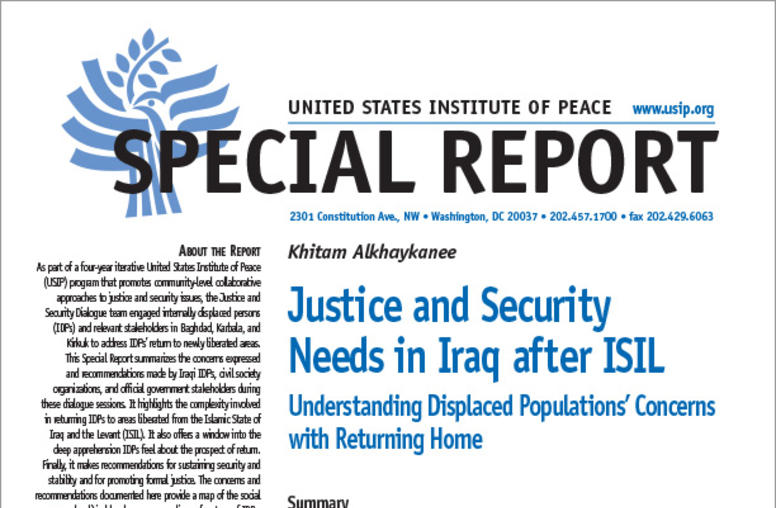
Justice and Security Needs in Iraq after ISIL
Many of the three million-plus internally displaced persons (IDPs) living in Iraq wish to return to their homes in areas no longer controlled by the Islamic State of Iraq and the Levant (ISIL). But weak security and informal justice in these areas make safe return a challenge. IDPs, civil society organizations, and official stakeholders met in Baghdad, Karbala, and Kirkuk under USIP’s Justice and Security Dialogue program to voice concerns about and offer suggestions for safe return. This Spe...
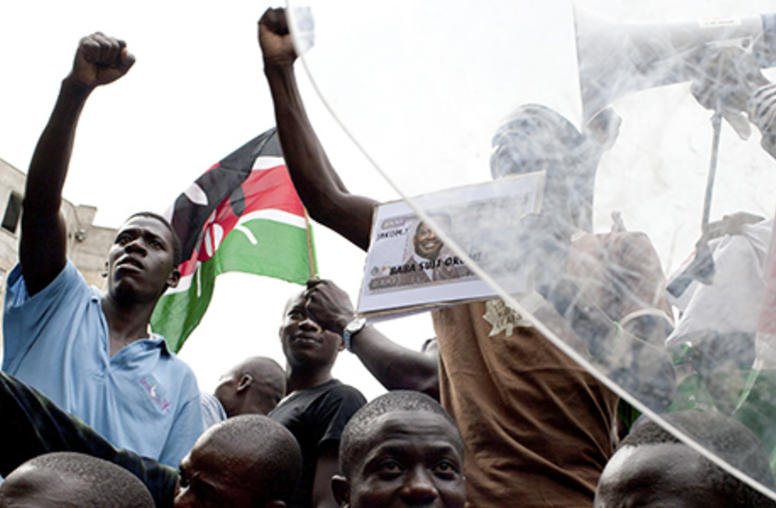
Q&A: Amid Kerry Visit, Kenya Braces for 2017 Elections
Kenyan President Uhuru Kenyatta’s first four years in office expire next year and he has announced he’s going to run for a second term in elections scheduled for August 2017. But the competition for power already is heating up.
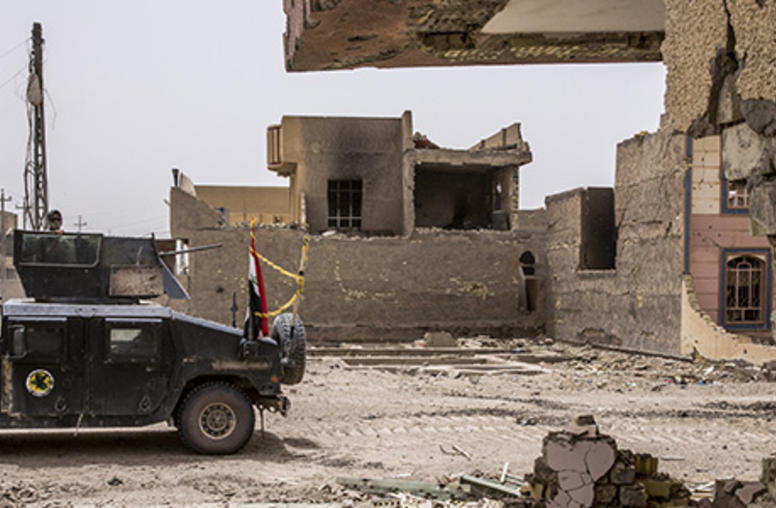
Iraq’s Executions: Aftershock of ISIS’ Deadliest Atrocity
Iraq’s execution yesterday of 36 men whom it accused of committing the deadliest single atrocity by the Islamic State group underscores that any stabilization of Iraq will require international support to strengthen the country’s overburdened judicial system, according to USIP Iraq specialist Sarhang Hamasaeed. Iraq’s government came under intense pressure from the country’s Shia Muslim majority population, and from the Shia “Popular Mobilization Forces,” or pro-government militias, to conduc...